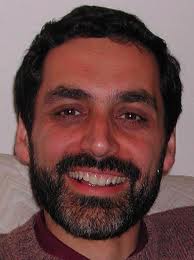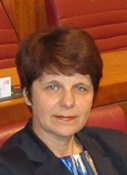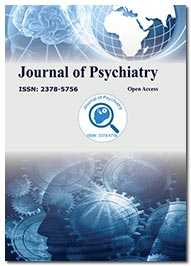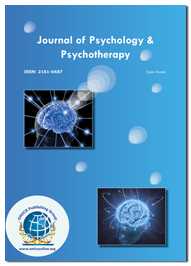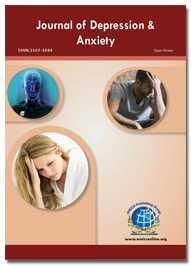Theme: Global research and therapeutic approaches towards psychiatry
Euro Psychiatry Summit-2015
OMICS International organizes conference series all around the world in 2015 and here we welcome you to the official website of Euro Global Summit and Medicare Expo on Psychiatry, during July 20-22, 2015 at Barcelona, Spain. The theme of the conference is based on “Global research and therapeutic approaches towards psychiatry”.
The rising rates of suicide and depression are among the most obvious signs of the increase in mental illness cases globally. Every year more than 500 Psychiatry Conferences are conducted all over the world. Mental illness affects people of all ages having a significant impact on many young people. About 27% of the adult population had experienced at least one of a series of mental disorders which includes problems arising from psychosis, substance use, depression, eating disorders and anxiety. Neuropsychiatric disorders are the second cause of disability-adjusted life years (DALYs) in Europe, it accounts for about 19% whereas cardiovascular disorder causes 4% disability-adjusted life years. Mental illness affects people of all ages having a significant impact on many young people.
Europe is considered as the second largest region for Psychiatry research market. For conducting Psychiatry conference Europe is the best option, presence of psychotherapy association like British Association for Counseling and Psychotherapy, British Psychoanalytic Council and United Kingdom Council for Psychotherapy drives the market growth in Europe.
Barcelona is the 2nd largest city of Spain it is one of the world's leading economic, tourist and cultural-sports centers its influence in education, commerce, media, entertainment, science, fashion, all contribute to its status as one of the world's major global cities. Barcelona had a GDP of $170 billion; it is one of the leading cities of Spain on both employment and GDP per capita change. The city was ranked Europe's third and one of the world's most successful city brands. The city was ranked Europe's fourth best city for business and fastest improving European city. Europe is considered as the second largest region for psychiatry research market. Most prominent among these is the University of Barcelona it is a world-renowned research and teaching institution with campuses around the city. Barcelona is also home to the Polytechnic University of Catalonia, and the newer Pompeu Fabra University. For more
Scientific Sessions
Track 1: Psychiatric Disorders and their Manifestation
Psychiatric Disorders are disorders of brain function. It results from complex interactions between a person’s genes and the environment. The DSM and ICD separate mental disorders into separate categories. The goal of this session is to understand the manifestation, prognosis, treatment and diagnosis of various types of dissociative disorders. There are three main types of dissociative disorders defined in the Diagnostic and Statistical Manual of Mental Disorders; they are Dissociative Amnesia, Dissociative identity disorder and Depersonalization disorder Multiple, Borderline and Paranoid Personality Disorder and three major types of Dissociative identity disorder which we will be focusing on in our conference. Bipolar disorder is also known as manic-depressive illness that causes unusual shifts in mood and energy. At least half of all cases start before age 25. The people with bipolar disorder experience unusually intense emotional states that occur in distinct periods called mood episodes. Overly joyful or overexcited state is called a manic episode; an extremely sad or hopeless state is called a depressive episode. The goal of this session is to understand the manifestation, treatment and diagnosis of various aspects of bipolar disorders like imaging and genetics of bipolar disorder.
International psychiatry conferences provide an opportunity for people working on mental health. Euro Psychiatry Summit- 2015 will congregate renowned speakers, principal investigators, experts, psychiatrist and researchers from both academia and health care industry will join together to discuss their views and research.
Track 2: Clinical Psychiatry and Case Reports
Clinical psychiatry is the branch of psychiatry which deals with the primary treatment, diagnosis of mental disorders which includes schizophrenia, bipolar disorder, addictions and anxiety disorder. The goal of this session is to understand prevention, treatment of mental disorders, detection of genetic markers and discussion about various case studies.
This Annual Meeting provides the latest and scientific developments in Psychiatry to physicians and allied health professionals who treat patients with substance use disorders and mental health disorders. This Psychiatry Conference is structured to encourage interaction among clinicians from various disciplines, approaches, and settings.
Track 3: Childhood and Pediatric Psychiatry
Mental disorders diagnosed in children are mainly divided into two categories: childhood disorders and learning disorders. They are diagnosed when the child is of school-age, some adults may also relate to some of the symptoms of these disorders. Child psychiatry is the branch of Psychiatry which deals with the diagnosis, treatment and prevention of psychological disorders in children. Child Psychiatry conference is a remarkable opportunity to gain knowledge and to aware the general public about various child psychiatric disorders. Most common developmental disorder is mental retardation. As per the CDC report, more than one out of every 100 school children in the United States has some form of mental retardation. The second most common developmental disorder is cerebral palsy which is then followed by autism spectrum disorders. Our conference will address all areas pertinent to various childhood disorders including Attention Deficit/Hyperactivity Disorder, Attachment Disorder, Autism Spectrum Disorder and Mood Dysregulation Disorder. According to a recent study about 7 percent of kids worldwide have ADHD. As per the U.S. Surgeon General, about 20% of American children suffer from a diagnosable mental illness during a given year. Nearly 5 million American children and adolescents suffer from a serious mental illness.
Track 4: Post-traumatic Stress Disorder
Post-traumatic stress disorder (PTSD) is an anxiety disorder caused by very frightening or stressful distressing events. It is estimated to affect about 1 in every 3 people who have a traumatic experience. Panic disorders and anxiety are most common in person suffering from PTSD. We will be discussing about the major causes, symptoms of PTSD such as depression, domestic harassment and abuse or trauma.
Track 5: Schizophrenia: Behavioral Disorder
Schizophrenia is a serious mental disorder which interferes with a person’s ability to think clearly and manage emotions. It is a long-term medical illness; it generally affects people of all age. The average age of onset tends to be in the late teens to the early 20s for men and late 20s for women. Symptoms may include: Delusions, Hallucinations, Disorganized thinking, Negative symptoms are sometimes confused with clinical depression. Our conference will address all areas pertinent to onset, genetics, prognosis, treatment and diagnosis of schizophrenia.
Track 6: Neuropsychiatry and Addiction Disorders
Addiction or Addictive disorders have a huge impact on individuals and society through the direct adverse effects of drugs and functional consequences of altered neuroplasticity in the brain which causes loss of productivity. The effect of addiction includes impaired control over substances, preoccupation with substance, continued use despite consequences and denial. Potential addictions include behavioral and cyber addiction, substance abuse, gambling and alcohol addiction. Recently, only substance addictions and gambling addiction are recognized by the DSM-5. According to the Substance Abuse and Mental Health Services Administration's National Survey on Drug Use and Health, an estimated 22.3 million Americans ages 12 and older suffered from a substance abuse problem about 15.5 million abused alcohol alone. The goal of this session is to understand various aspects of addiction and its treatment and rehabilitation.
Track 7: Forensic Psychiatry
Forensic psychiatry is a field of psychiatry which deals with the assessment and treatment of mentally disordered offenders and criminals. It is an interface between mental health and law. Work of forensic patients is stimulating as patients present with diverse psychopathologies and complex psycho-social difficulties. Forensic psychiatrists have to balance the risk to society and the needs of the individual. They provide medical treatment in a secure environment or where patients are subject to legal restrictions. Our conference will be focusing about recent developments in forensic psychiatry, criminological studies, ethical issues in forensic psychology and behavioral forensic science.
Track 8: Emergency Psychiatry
Emergency psychiatry is the application of psychiatry in emergency settings. The conditions requiring psychiatric interventions may include substance abuse, attempted suicide, psychosis, depression violence or other rapid changes in behavior. According to National Hospital Discharge Survey: 2010 the number of discharges with psychoses as first-listed diagnosis is 1.5 million and average length of stay for mental disorders: 7.2 days. The goal of this session is to understand various psychiatric interventions such as, depression, attempted suicide, psychosis, violence or any other rapid changes in behavior.
Track 9: Geriatric Psychiatry
Geriatric psychiatry is also known as psychogeriatrics is a subspecialty of psychiatry dealing with the treatment, study and prevention of mental disorders in humans with old age. According to recent data indicate that an estimated that about 20.4 percent of adults aged 65 and older fulfilled the criteria for a mental disorder. In this session we will be discussing about the various aspects of geriatric psychiatry, its study, prevention and treatment.
Track 10: Discrimination and Stigma Related to Mental Health
Mental disorders affect thousands of people, their family, friends and society. One in four people will experience a mental health problem at some point in their lives.
Depression affects around one in 12 of the whole population. About 450 million people world-wide have a mental health problem. Even though so many people are affected with mental illness there is still a strong social stigma attached to mental health. Nine out of ten people with mental disorders say that discrimination and stigma have negative effect on them. In this session we will be discussing about the role of media in promoting care and reducing stigma surrounding mental health, strategies involved and innovations in stigma research.
International Psychiatry conference 2015 will be a major meeting of international psychiatrists dedicated to promoting psychiatry and to improving mental health around the globe, headed by the common interest of improving mental health.
Track 11: Diagnostic Approaches towards Psychiatry
The recent diagnostic systems for mental disorders depend upon signs and symptoms, of the disorders and also on the development of new treatments. Deep brain stimulation involves implanting electrodes or brain pacemaker within areas of brain. Those electrodes produce electrical impulses that regulate abnormal impulses. DBS is an interface between neurology and psychiatry. DBS is also being studied as a treatment for epilepsy, headaches, major depression and Tourette syndrome. Deep brain stimulation (DBS) is one of the most invasive neuromodulation techniques available in recent times. Our conference will address all areas related to Psychosurgery, neuro feedback mechanism and side effects of DBS. In our conference we will be discussing about electroconvulsive therapy, somatic treatments including drugs and deep brain stimulation such as Trans cranial magnetic stimulation therapy, Electroencephalography and Magneto encephalography, Computed tomograph and Positron emission tomography.
Track 12: Cognitive Neuroscience
Cognitive Neuroscience is a branch concerned about both psychology and neuroscience. Cognitive neuroscience is all about perception, memory, action, and language. It can look at effects of damage to the brain and subsequently changes in the thought processes. Cognitive neuroscience has emerged from many other fields like psychology, neuroscience and computer science. Our conference will mainly emphasize on induced cognitive function and response, psychological aspects of cognitive neuroscience, cognitive impairment and prevention of relapse.
Track 13: Psychoactive Medication
Psychoactive Medication often helps in treating depression, anxiety and other psychological complications. It does not affect the underlying causes of these disorders, but it provides symptomatic relief to allow people to live more normal lives. Most of the drugs covered in this section have numerous effects on the nervous system. Psychotropic drugs for the treatment of mental illness are dependent on the disorder for which they are prescribed. Mainly it is used as an enhancing therapy for the treatment of psychiatric disorders. Based on the data from the National Health and Nutrition Examination Survey Males (4.2%) were more likely than females (2.2%) to use ADHD drugs. Females (4.5%) were more likely than males (2.0%) to use antidepressants. The goal of this session is to understand the relationship between antipsychotics and psychotherapy, role of Akt/GSK3 signaling and dopamine in the action of psychotropic drugs.
Track 14: Advanced Therapeutics for Psychiatric Disorders
Psychotherapy is often used either alone or in combination with medications to treat mental illnesses. Nowadays extraordinary advances have been made in the treatment of mental illness. Treatment methods for psychiatric disorders can be differentiated as either somatic or psychotherapeutic. In our conference we will be discussing about electroconvulsive therapy, somatic treatments including drugs and deep brain stimulation such as Trans cranial magnetic stimulation therapy on psychotherapeutic treatments including psychotherapy and behavior therapy techniques such as hypnotherapy, Dialectrical behavior therapy and mindfulness-based therapies.
We invite you to join us in Spain for the Euro Psychiatry 2015 exclusive of all conferences Psychiatry 2015 revolves around the world Solving Clinical Challenges, Improving mental health and discussions on advanced clinical therapies. Psychiatry conferences Europe 2015 will be an annual international event gathering scientists and psychiatrists from around the world to share an interest in Psychiatry; this innovative, multidisciplinary conference delivers a comprehensive overview of disorders to therapies.
Psychiatry conferences 2015 United States: In the year 2015 about 300 conferences are being conducted in the field of Psychiatry in USA alone. Recent innovative technologies have made Psychiatry a budding topic of research in the scientific community.
Conference Highlights
- Psychiatric Disorders and their Manifestation
- Childhood and Pediatric Psychiatry
- Schizophrenia: Social Behavioral Disorder
- Post-traumatic Stress Disorder
- Clinical Psychiatry and Case Reports
- Neuropsychiatry and Addiction Disorders
- Discrimination and Stigma Related to Mental Health
- Cognitive Neuroscience
- Forensic Psychiatry
- Emergency Psychiatry
- Geriatric Psychiatry
- Diagnostic Approaches towards Psychiatry
- Drugs in Psychoactive Medication
- Advanced Therapeutics for Psychiatric Disorders
To share your views and research, please click here to register for the Conference.
To Collaborate Scientific Professionals around the World
| Conference Date | July 20-22, 2015 | ||
| Sponsors & Exhibitors |
|
||
| Speaker Opportunity Closed | Day 1 | Day 2 | Day 3 |
| Poster Opportunity Closed | Click Here to View | ||
Useful Links
Special Issues
All accepted abstracts will be published in respective Our International Journals.
Abstracts will be provided with Digital Object Identifier by













